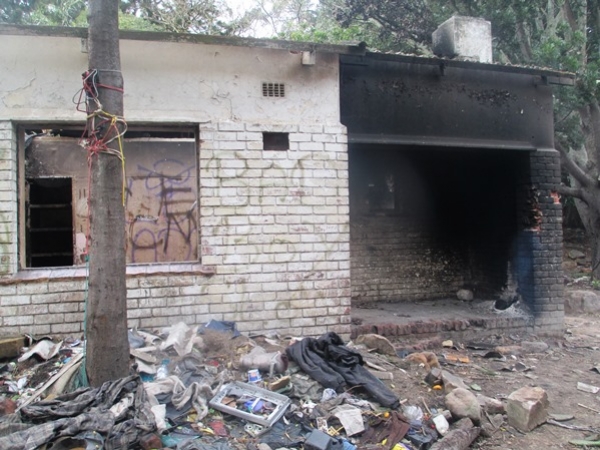Council will on Wednesday be asked to approve the demolition of the notorious ‘White House’, identified as a problem building in Hout Bay, Mayor Patricia de Lille said.
Earlier this month, some residents took matters into their own hands and set the building alight as they believed their calls for the demolition of the building were being ignored.
There has reportedly been an upsurge of criminal elements using the house and the property has become known as a base for criminal activity, De Lille said in a statement.
“While I sympathise with some of the frustrations felt by residents, I must appeal to communities not to resort to taking the law into their own hands,” she said.
“The fire left the building structurally unsound, but a greater concern is that the fire could have spread, putting lives and other properties at risk.”
While residents needed to use the available channels to communicate with authorities, this incident has shown that the city needed to take strong action in their own backyard, De Lille conceded.
“I have also asked that all City directorates submit a report listing the problem buildings in their possession and what their intended use is, with photographs included.”
Once the reports have been submitted, she will be meeting with all of the executive directors and mayoral committee members, before an inspection of the listed buildings.
Owners must take responsibility
The mayor said the City’s Problem Building Unit was established to implement the Problem Building By-law passed in 2010 and to help the City identify, control and manage dilapidated and problem buildings.
This intervention to deal with problem buildings has enabled the City to address over 5 000 problem buildings reported to the City since the inception of the by-law.
Problem buildings are properties that contravene national building regulations; are overcrowded or in a deplorable state; are the subject of numerous complaints; or are the sites of criminal activity.
The by-law makes provision for offenders to be fined and to face penalties of up to R300 000 or imprisonment of up to three years, or both.
Once a building or property has been declared in terms of the by-law, a monthly tariff of R5 000 is added to the rates and services account for the property.
The Problem Buildings Unit is currently investigating 1 953 problem building complaints, with most of these cases involving privately owned properties.
In 2014, the City’s Problem Building Unit closed 277 cases and racked up tariffs of more than R700 000 against errant property owners, the statement said.
“I urge communities to report problem buildings and any illegal activity taking place so that we can act,” said De Lille.
“Most importantly, we need all property owners to take responsibility for their properties and ensure that it does not become a haven for criminals.”






 WhatsApp us
WhatsApp us 

